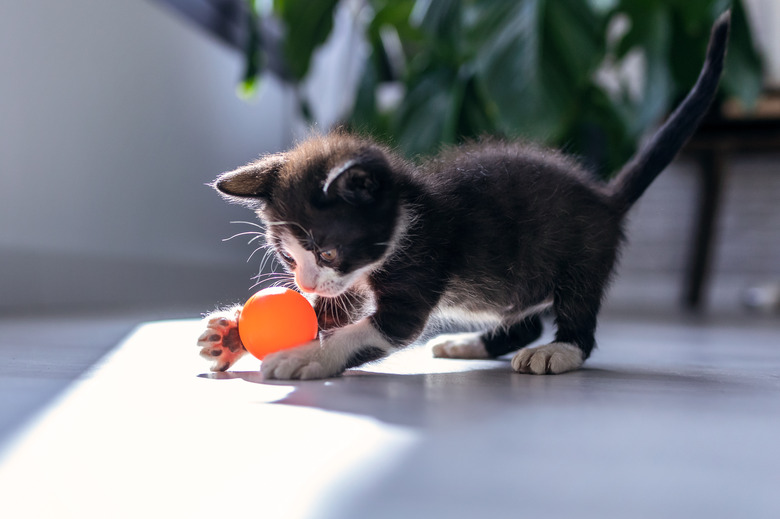Can You Get Rid Of Mice With Cat Urine?
We may receive a commission on purchases made from links.
The fact that cats are hardwired to chase and capture mice is nothing new. This would suggest that just the presence of a cat and the smell of its urine would be enough to work as a mouse repellent. However, cat urine doesn't have the repellent qualities that you would think and might not even repel mice at all.
Tip
Using cat urine as a mouse repellent isn't a guarantee you'll rid your home of mice. In fact, when mice are introduced to the scent while very young, they become accustomed to the odor and are less likely to flee the area and the cat.
Using Cats to Control Mice
Using Cats to Control Mice
It's common knowledge that cats prey on mice. Therefore, it stands to reason that if you get a cat, your rodent problem will be a thing of the past. However, unless you have a single mouse and not mice, a cat probably won't eliminate your rodent problem.
A study published online in 2017 in the journal PLOS ONE analyzed the effect dogs and cats had on rat and mouse populations around rural homesteads in a couple of African villages. The researchers found that the foraging activity is about the same when no dogs or cats are present as when either a cat or dog wis present. However, when both a dog and cat are present, foraging activity is significantly reduced, leading researchers to surmise that the presence of both predators heightens the fear in mice. Although additional research is required to test suburban settings, this study shows that cats on their own might not be the answer to the control of mouse activity.
Using Urine as a Mouse Repellent
Using Urine as a Mouse Repellent
In 2015, Russian researchers at the A. N. Severtsov Institute of Ecology and Evolution reported at a meeting of the Society of Experimental Biology that their study showed that when mice are exposed to cat urine early in their lives, they are less likely to try to escape the odor and predator cats later. The researchers found when mice younger than two weeks old are exposed to the chemical L-Felinine found in cat urine, they grow accustomed to the scent. It's thought that when the baby mice are nursing and the scent is present, it produces positive reinforcement and they don't experience the fear and flight response.
Mice that are accustomed to the cat urine scent have the same stress responses as those that aren't accustomed to the odor, but they don't act on the stress and continue foraging for food. However, the chemical in cat urine does have an effect as it appears to block pregnancy and reduce litter size.
When it comes to cat urine acting as a mouse repellent, there is clearly no proof that mice will leave the area where the odor is present, especially if the mice are used to the scent. Regarding cat litter and mice, the same logic applies: Even if the litter contains urine, there's no guarantee it will work as a repellent. The best course of action to get rid of mice in your home is to keep trash cleaned up, patch entry holes into your home, and use regular sanitation practices.
